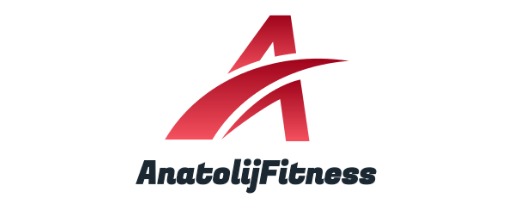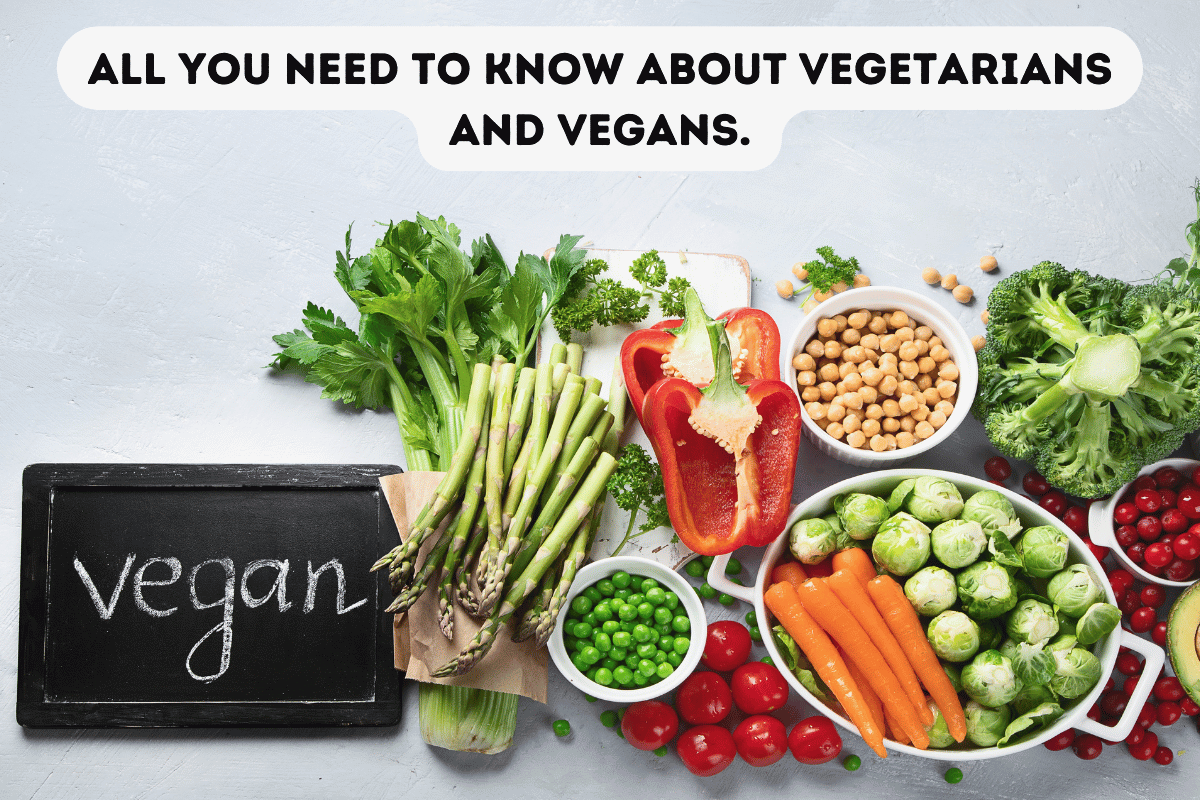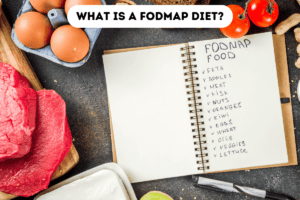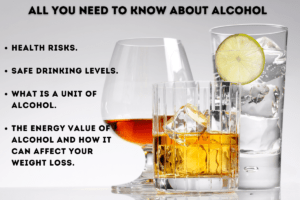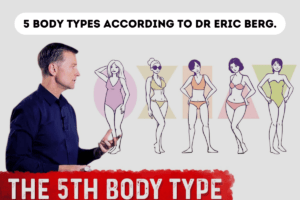Undoubtedly, diets packed with fruits and vegetables are very healthy for our bodies. Whole, minimally processed foods like fruits, vegetables, grains, nuts, and seeds can help lower the risk of heart disease, blood pressure, obesity, and type 2 diabetes. These foods contain heart-healthy fats, vitamins and minerals, and antioxidants, low in saturated fat and an excellent fibre source. But is it good to eat just fruits and vegetables and exclude all animal products and dairy? Let’s find out.
Who is vegetarian, and who is vegan?
Before we start, it is essential to understand who is vegan and who is vegetarian. Vegan is somebody who consumes 100% plant-based diet. A plant-based diet is any diet that consists predominantly of foods derived from plant sources. This includes fruit, vegetables, grains, pulses, legumes, nuts and meat substitutes such as soy products. Vegans do not consume any animal products or by-products. This means they do not consume meat, fish, eggs and dairy foods or use honey, beeswax, gelatin or any other animal by-product.
As to vegetarians, there are many types of vegetarians. Some do not eat meat, fish or eggs but consume dairy products such as cheese, milk and yoghurt (lacto-vegetarians). Others do not eat meat, fish or dairy products; however, they consume egg products (ovo-vegetarians). Also, there are vegetarians who consume some fish and seafood (pescatarians) and those who occasionally eat some meat and fish (Flexitarians). However, the most common type of vegetarians is lacto-ovo-vegetarians. Additionally, to plant-based diets, they also eat eggs and dairy products. They do not consume any meat or fish.
As mentioned above, following vegetarian or vegan diets will help you get lots of vitamins and minerals from your meals and lower many health risks. However, excluding animal products and dairy completely without proper meal planning can also affect your health negatively. Before deciding to become vegetarian or vegan, you should know how to plan your diet properly and how to get all the necessary nutrients from it.
All vegetarians and vegans should be concerned about:
1) Protein. Meat has a higher protein content, but getting the necessary amount of protein (and all necessary amino acids) from plant foods is possible. Alternatives: quorn™ (mycoprotein), tofu, soya products, TVP (Textured Vegetable Protein), Pulses (like lentils, kidney beans and peas). Eggs are an excellent source of protein for vegetarians.
2) Iron. There are two main types of dietary iron: heme iron and non-heme. Heme iron is more readily absorbed, and sources include liver, meat, poultry and fish. Non-heme iron is less efficiently absorbed. So, vegetarians and vegans should aim for an iron intake higher than the RNI to compensate for the lower iron availability from plant-based diets. Good plant sources of iron include lentils, beans, chickpeas, tofu, cashew nuts, chia seeds, linseed, hemp seeds, pumpkin seeds, kale, dried fruit, quinoa and fortified breakfast cereals. Also, it is essential to know that tea and coffee have compounds that inhibit iron absorption. Vitamin C and vitamin A help the body absorb iron.
3) Calcium is a mineral that is an essential part of bones and teeth. The RNI for calcium is 700mg daily for both men and women. For vegetarians, it is possible to meet calcium requirements with dairy products. Vegans can use sources of calcium such as fortified plant milk such as soya, rice, almond and oat milk, tofu, leafy green vegetables, almonds, sesame seeds and tahini, dried fruits, pulses and bread.
4) Vitamin B12 is only naturally found in animal products. Vegetarians can get vitamin B12 from dairy and eggs. Vegans must eat foods fortified with vitamin B12 or take a vitamin B12 supplement. Sources of Vitamin B12 are breakfast cereal, yeast extract (Marmite), yeast flakes and soya milk.
5) Omega 3 fatty acids. Diets that don’t include fish or eggs will be low in omega-3, three long-chain fatty acids. For vegans and vegetarians, it is hard to get these omega-3 fatty acids. Plant foods containing omega-3 fatty acids are called alpha-linolenic acid (ALA), which can be converted to EPA and DHA in our bodies, but this process is inefficient. Good sources of ALA include flaxseeds, chia seeds, walnuts and soy. Supplementing a vegan diet with EPA and DHA from algae is also possible.
6) Iodine. Iodine is a trace mineral required for the synthesis of thyroid hormones. These hormones regulate protein synthesis, enzyme, and metabolic activity. The RNI for iodine is 140mcg/day. The primary sources of iodine are fish and dairy foods. So, vegans can be at risk of deficiency. Fruits and vegetables contain iodine, but the amount varies depending on the iodine content of the soil and fertiliser. An excellent source of iodine would be Seaweed. However, vegans should be careful with Seaweed because some Seaweed varieties can provide excessive amounts and adversely affect the functioning of the thyroid gland. Just 1 gram of Kombu kelp can contain 3000mcg of iodine, over 20 times the recommended daily intake.
7) Selenium. Selenium is an antioxidant that helps protect against heart disease and some cancers. Eggs, meat, and fish are the main sources of selenium in UK diets. For vegans, good plant sources of selenium would be Brazil nuts, cashew nuts, and sunflower seeds.
8) Vitamin D. Vitamin D increases calcium absorption and promotes bone formation. During the summer months in the UK, our bodies can get all the vitamin D they need through sun exposure. During winter, we need to get our vitamin D from dietary sources like oily fish – such as salmon, sardines, herring, mackerel and fresh tuna. Red meat, liver, egg yolks, and fortified foods – such as most fat spreads and some breakfast cereals- also have vitamin D. For vegetarians and vegans, it is necessary to check food labels and select foods fortified with vitamin D. Alternatively, they could choose to take a vitamin D supplement containing 10mcg of vitamin D.
A plant-based diet and Eatwell guide.
To understand how to organise your plant-based diet, you should look at the Eatwell Guide. It is a tool that shows recommendations for healthy eating. More information about Eatwell Guide can be found in my article: “What is a balanced diet”. The main rules of the Eatwell Guide would be:
- Eat at least 5 portions of a variety of fruits and vegetables every day;
- Base meals on potatoes, bread, rice, pasta or other starchy carbohydrates; choosing wholegrain versions where possible;
- Have some dairy or dairy alternatives (such as soya drinks); choose lower fat and lower sugar options;
- Eat some beans, pulses, fish, eggs, meat and other proteins (including two portions of fish every week, one of which should be oily);
- Choose unsaturated oils and spreads and eat them in small amounts;
- Drink 6-8 cups/glasses of fluid a day;
- Foods and drinks high in fat, salt or sugar should be used less often and in small amounts.
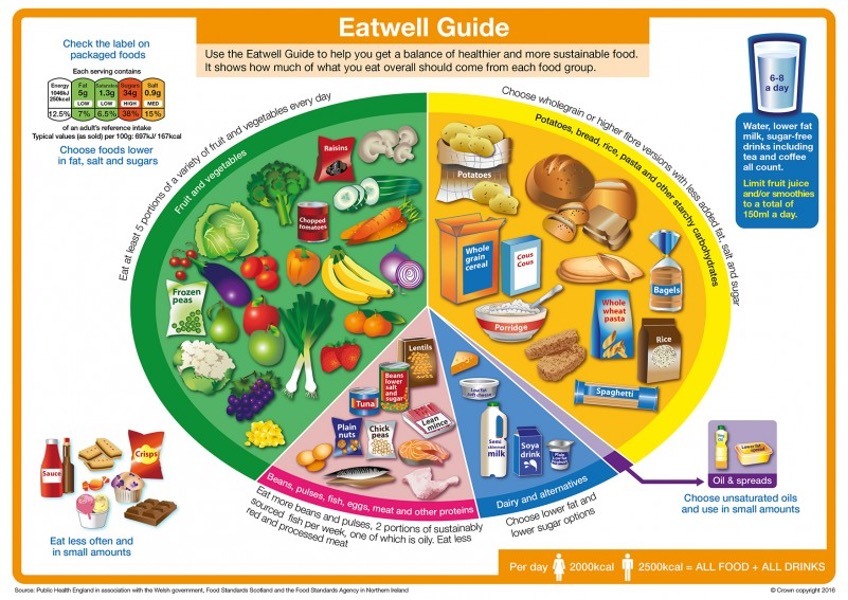
This Eatwell Guide can be applied to vegetarians or non-vegetarians because it includes plant-based alternatives to meat and dairy products. To make this guide more suitable for vegetarians and vegans, we need to understand their food preferences and make some adjustments to the Eat-Well guide. The best alternatives were already mentioned above when we discussed what nutrients vegetarians and vegans should be concerned about. One of these meat alternatives would be lentils, beans, pulses, soya and tofu. Alternative sources for dairy include soya and rice milk products. These alternatives, including plenty of green vegetables, cereals, and even yeast extracts such as Marmite, will help vegetarians and vegans maintain a balance of all nutrients. These alternatives would give them enough protein, calcium, iron and vitamin B12.
Conclusion.
All in all, there is evidence that vegetarians and vegans can have less risk of heart attack, high blood pressure, type 2 diabetes and so on. But mostly, it is because vegetarians and vegans tend to lead a healthier lifestyle overall. Most people decide to become a vegan or vegetarian because they want to be healthy, so they tend to drink less alcohol, don’t smoke and exercise more. That being said, whether meat is a bad guy is a big question. My opinion, the biggest problem is not in the meat, it is in too much processed foods and sugar.
By the way, a plant diet isn’t automatically healthy. Many foods, like chips, biscuits, and soft drinks, are made specifically for vegans. Such foods can contain too much salt, sugar, and saturated fat. If you are a vegan and you start snacking a lot on these foods, it is not going to be healthy. Plus, if you don’t plan your diet correctly, you can lack some essential nutrients, and it can also affect your health in the long term.
So, if you want to minimise health risks, it’s not necessary to become vegetarian or vegan; you can just minimise the amount of processed foods in your diet and increase the number of fruits and vegetables. This already will give you great health benefits. Plus, occasionally, a small amount of meat, poultry, fish, eggs, or dairy will provide you with all the necessary nutrients from your diet, and you will be sure you don’t have any nutrient deficiencies. My opinion, a flexitarian approach is the best if you decide to become a vegetarian.
